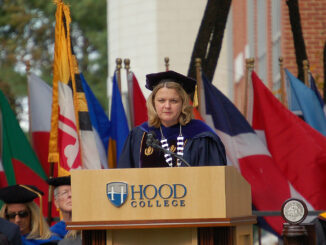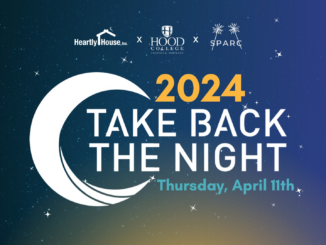By: Kristina Southwell
Dr. Leonard Latkovski, professor of history, spent a week inHanoi,Vietnamthis past August attending the eighth UNESCO World Congress. The conference brought together 250 representatives from 50 different countries.
Latkovski, who is on the board of Frederick’s UNESCO Center for Peace, was the only American in attendance.
The conference commemorated the 30th anniversary of the World Federation of UNESCO Clubs, Centres and Associations (WFUCA). The conference aims to bring together representatives from all over the world to share ideas and have a cultural and social exchange, as well as learn about new projects and issues around the world.
Latkovski, a lifelong advocate for human rights, found that the trip provided a memorable experience. The trip was the first visit toVietnamfor Latkovski, who said he “didn’t know what to expect.”
“The people are friendly, polite, and intelligent,” he said about his experience. “It is an interesting culture.”
The firsthand knowledge Latkovski gained from his trip also helps him in the classroom, particularly in his globalization class.
Latkovski describedVietnamas “open, progressive . . . changing fast, but the paradox is that communists are still in power.”Vietnamis a communist country that only recently adopted a modified open economy.
A professor from a local communist university acted as his tour guide, but she also asked Latkovski many questions about women’s rights in theUnited States. That moment highlighted the main objective of UNESCO, which is to create a dialogue among civilizations, cultures and peoples, based upon respect for commonly shared values, with the aim of promoting human rights, mutual respect and the alleviation of poverty.
Latkovski enjoyed his time inVietnamand the people he met.
“Everybody is accepting of Americans – students and officials,” he said.
Latkovski also noted thatVietnamviewsAmericaas a “role model” since they are “looking forward to greater progress and joining the rest of world.”
According to Latkovski, the fellow representatives at the World Congress were a “dynamic set of people.”
“They were not just there to enjoy the trip,” he said. “They were also working to improve their own countries as well as others’.”
Latkovski was glad that he had the opportunity to visit a country he has studied and taught the history of for so many years. Although the trip “came out of the blue,” according to Latkovski, giving him little time to prepare, he was happy he went.
“Your eyes and mind are open when you travel,” he said.
A leading expert onRussiaand the Baltics, Latkovski teaches courses at Hood onRussia, revolutions and 19th and 20th centuryEurope. A noted specialist of Baltic history, his research interests include the history of Latgale, religion inLatvia, and Latvian ethnic minorities. Latkovski has presented more than twenty scholarly papers on these topics.
He is currently working on a project entitled “The History of the Catholic Church in Latvia.”




Be the first to comment